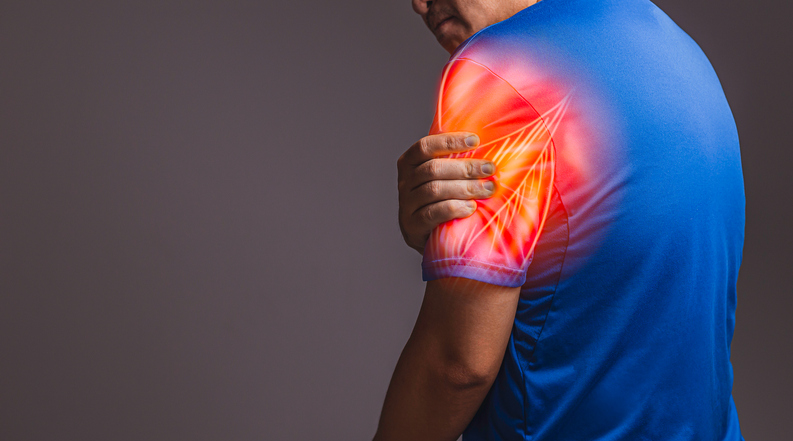Pain
What Is Polymyositis?

Polymyositis is a health condition in which the muscles become inflamed, leading to muscle weakness. It is part of a group of conditions known as inflammatory myopathies. Myopathies are a group of neuromuscular disorders in which the primary symptom is muscle weakness that results from dysfunction of the muscle fiber.
What are the symptoms of polymyositis?
The symptoms of polymyositis include the following:
- Muscle weakness, especially in the abdomen, hips, shoulders, and thighs
- Muscle pain
- Joint pain or stiffness
- Difficulty rising from a sitting or lying position, lifting objects, or climbing stairs
- Difficulty swallowing
- Fatigue
- Fever
- Weight loss
- Shortness of breath
With polymyositis, muscle weakness typically affects both sides of the body equally. The muscles closest to the center of the body are usually affected first, but the weakness may spread to other muscles as the condition progresses. Symptoms often worsen gradually, over a period of three to six months.
What causes polymyositis?
The exact cause of polymyositis is not known. The medical community believes it may be an autoimmune condition, in which the body’s immune system mistakenly attacks healthy cells. It may have a hereditary component, or it may be triggered by a virus or a reaction to a medication.
Who is at risk of developing polymyositis?
- Polymyositis is most commonly diagnosed between the ages of 30 and 60. It affects women almost twice as often as men. Individuals with autoimmune diseases (e.g., rheumatoid arthritis, lupus, or scleroderma) or a virus (e.g., HIV) are at higher risk of developing polymyositis.














